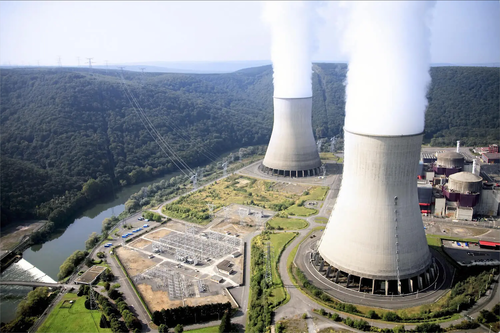SOURCE:
France To "Reduce Or Halt Nuclear Output" As Heatwave Restricts Ability To Cool Plants | ZeroHedge
Forecast models indicate that high temperatures will persist across France in early August. Europe's second-largest economy has endured record-breaking heat this summer that has curbed nuclear power production.
We detailed last month, "France Cuts Nuclear Power Generation Amid Record-Breaking Heatwave," and now, more reductions are planned amid an energy crisis.
Bloomberg reported French utility Electricite de France SA (EDF) said nuclear power stations on the Rhone and Garonne rivers will reduce power generation because a persistent heatwave is increasing water temperatures too hot to circulate through condensers and discharge back into waterways.
Under French rules, EDF must reduce or halt nuclear output when river temperatures reach certain thresholds to ensure the water used to cool the plants won't harm the environment when put back into waterways.
Restrictions have been in place at various times during the summer already. The latest warnings include curbs at the St. Alban plant from Saturday, according to a filing. The facility will operate at a minimum of 700 megawatts, compared with a total capacity of about 2,600 megawatts. Reductions are also likely at the Tricastin plant, where two units will maintain at least 400 megawatts. -Bloomberg
France is the continent's largest producer of atomic energy, usually a net exporter of power across EU member states but is now importing electricity since the output this summer will be the lowest in more than three decades. The cause of declining nuclear power output is plants shut for maintenance and or inspection checks.
France's nuclear reactor capacity was around 44% on Monday. Bloomberg data showed that two reactors restarted earlier this week, which boosted nuclear capacity to 49% on Wednesday.
The reductions in nuclear power output have helped push power prices to near record levels in France and neighboring countries, such as the UK and Germany. France's power generation problem comes as Europe faces the worst energy supply crunch in decades. Russia reduced natural gas flows via Nord Stream 1 pipeline to just 20% capacity the other week, causing fear of a prolonged energy crisis through 2023.
